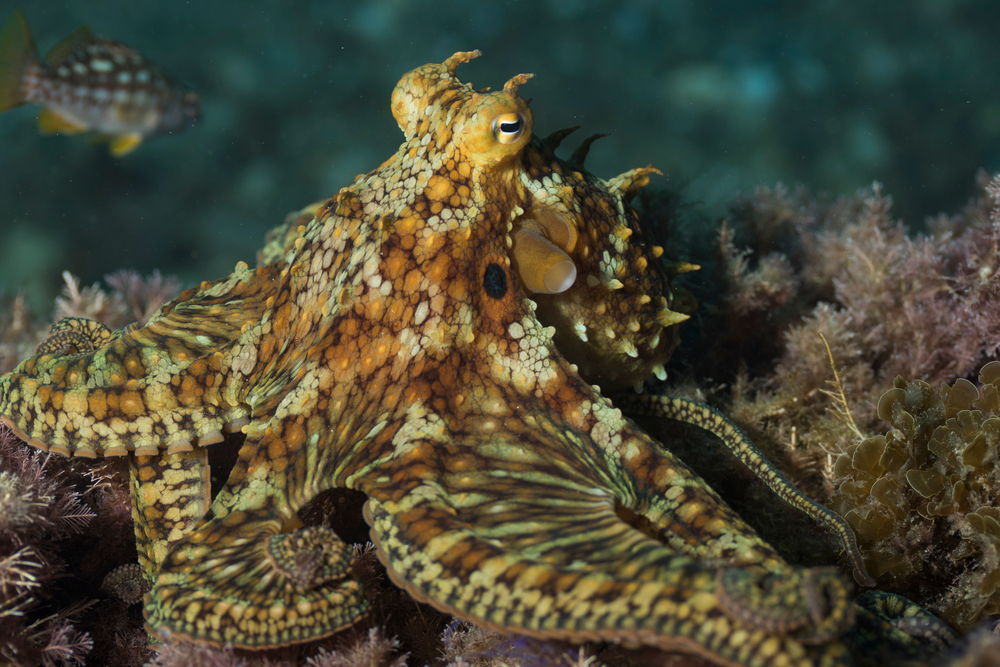
Octopuses May Have 480 Million-Year-Old Sex Chromosomes
www.discovermagazine.com
The octopus is a marvel of the sea. With their eight flexible, sucker-lined tentacles, their vast intelligence, and the ability to squeeze themselves into tight spaces, these cephalopods have long captured our wonder. While the octopus still holds many secrets, a new study helps answer the long-held question of how these creatures determine their sex.Dating back 480 million years, octopuses have one of the oldest known sex chromosomes, according to a new study published in Current Biology. The study unveils that octopuses determine their sex through chromosomes, which helps researchers explore more of the octopus genetic history.Determining Sex ChromosomesMost mammals, including humans, determine sex through chromosomes. However, thats not the case for all animals. In other animals, such as sea turtles, the temperature of the sand that incubates the eggs determines the sex of the offspring. Certain fish have a gene that determines sex, which isnt a full chromosome. So, when it came to the octopus, it was unclear how sex was determined.Cephalopods are already such interesting creatures, and there are so many things were still learning about them, especially in neuroscience, said Gabby Coffing, a doctoral student at the University of Oregon working in the lab of biologist Andrew Kern, in a press release. This is just showing one more interesting thing about them: They have really ancient sex chromosomes.Half a ChromosomeThe team was sequencing the DNA of a female California two-spot octopus when they noticed a chromosome containing only half the amount of genetic material, and it looked different compared to the male two-spot octopus DNA that had been sequenced.This particular chromosome had half the amount of sequencing data, which indicated there was only one copy, said Coffing in a press release. Then, as we explored that more, we reached the conclusion that we must have stumbled upon a sex chromosome.To confirm the findings, the researchers looked at past octopus genomic data and noted that they werent clearly labeled as a male or female. However, they did find evidence of another half-chromosome in a different species of octopus. The same thing was found in squid genes, even though squids and octopuses diverged evolutionarily between 248 million years and 455 million years ago.Lastly, researchers noted that the nautilus, a mollusk that also diverged from the octopus around 480 million years ago, also had a similar chromosome. This indicates that this type of sex determination has been in the species for millions of years.This, said Andrew Kern, head of the lab Coffing and the research team, is unusual for sex chromosomes. These chromosomes impact reproduction and often change and evolve rapidly over time. However, it appears that for octopuses and other cephalopods, this is the method theyve stuck with.A Possible New SystemFor humans, we use the XX/XY system to identify the female and male chromosomes XX is female and XY is male. However, the research team believes that octopuses may relate to the system used for butterflies and birds, which is ZZ/ZW males are ZZ and females are ZW.The team has yet to identify a W chromosome in any octopus. Its possible that octopuses could have a different system altogether where males are ZZ and females are just Z. According to Coffing, the chromosome system has not yet been determined. But with these findings, Coffing and the rest of the team are another step closer to unveiling more of the octopus mysteries. Article SourcesOur writers at Discovermagazine.com use peer-reviewed studies and high-quality sources for our articles, and our editors review for scientific accuracy and editorial standards. Review the sources used below for this article:Current Biology. Cephalopod sex determination and its ancient evolutionary origin A graduate of UW-Whitewater, Monica Cull wrote for several organizations, including one that focused on bees and the natural world, before coming to Discover Magazine. Her current work also appears on her travel blog and Common State Magazine. Her love of science came from watching PBS shows as a kid with her mom and spending too much time binging Doctor Who.
0 Σχόλια
·0 Μοιράστηκε
·65 Views


